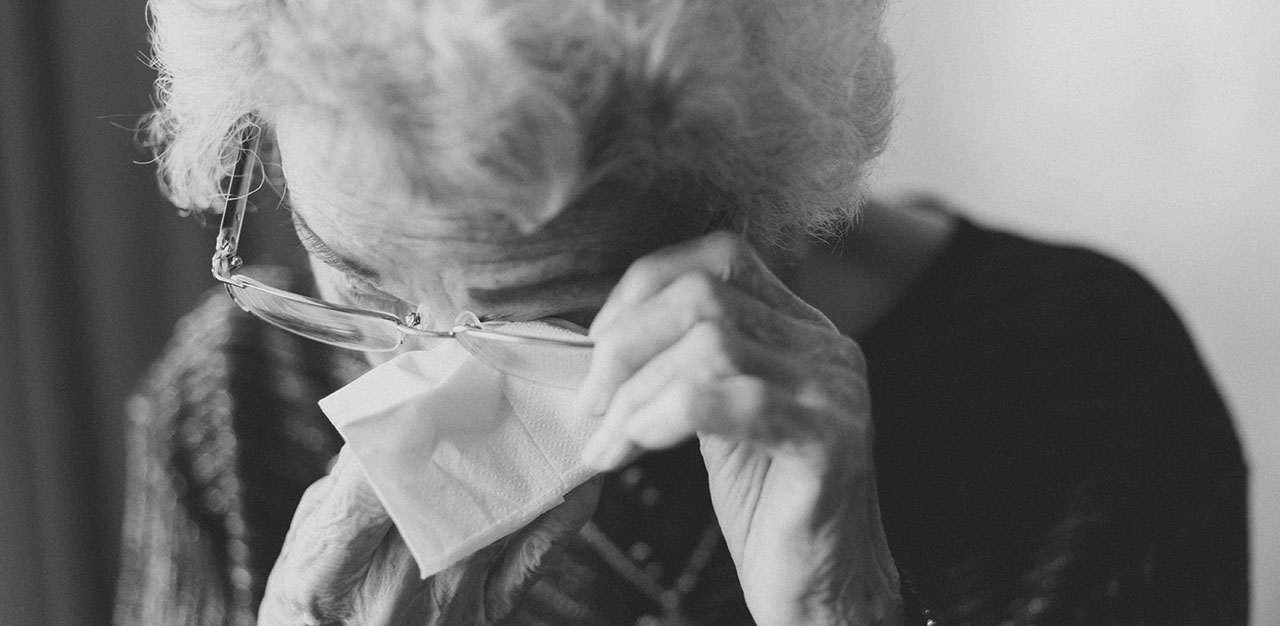A United Nations day of action, International Widows’ Day (23 June) aims to draw attention to the voices and experiences of widows around the world, as well as to encourage progress in the realisation and recognition of their rights. TheHomeGround Asia speaks to three women in Wicare Support Group, Singapore’s first and only charity that focuses solely on supporting widows, to find out their stories, their struggles and their hopes for the future.
They exist in every country and every culture, yet often remain invisible. They face stigma, abuse and discrimination, often at the hands of family members and their communities. But that is just the tip of the iceberg.
Welcome to the reality of scores of women the world over – widowed women, that is, of all ages; from child widows, to young women and young mothers, from older women and elderly grandmothers, to ‘half-widows’ (wives of the missing or forcibly disappeared).
A 2015 report by The Loomba Foundation, a non-governmental organisation dedicated to the emancipation and empowerment of widows, puts the global population of widows at more than 258 million. According to the United Nations, widows have “historically been left unseen, unsupported and unmeasured in our societies.”
Add to that active armed conflicts in Yemen, Syria, Ethiopia, Palestine, Ukraine and elsewhere, as well as an ongoing pandemic with a higher case-fatality rate among men, and the number of widows worldwide looks set to skyrocket.
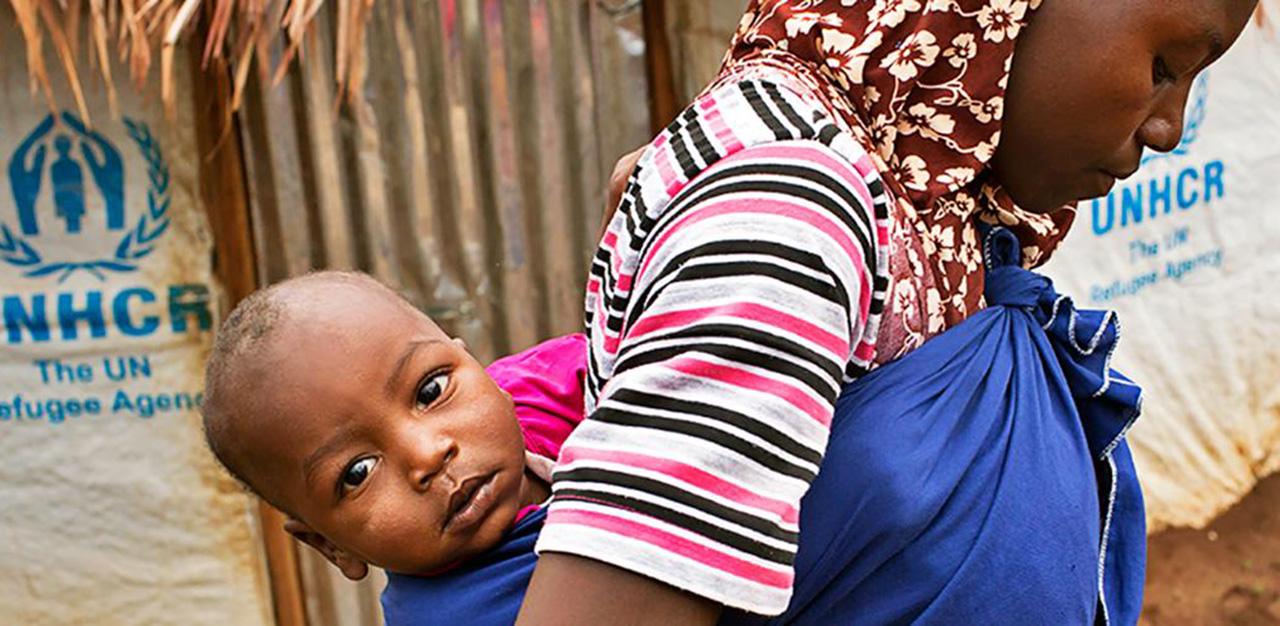
The plight of widows around the world – deprivation, devaluation and discrimination
In many countries, widows are not only subject to patriarchal customs and discriminatory inheritance laws that strip them of their dignity and property, they also endure social stigmatisation, economic insecurity and physical, mental and sexual violence.
Frequently left without equal inheritance rights, widows might be stripped of their land, evicted from their home, or even separated from their children. Compounding this, as cited by UN Women, they might be “denied access to inheritance, bank accounts and credit, leaving them financially destitute, which impacts their children and future generations.” It also notes that an estimated one in 10 lives in extreme poverty.
Although widows in Singapore may not be treated as social pariahs or coerced into harmful, traditional cleansing rites and rituals, they nevertheless face an uphill battle for support and recognition.
Based on the Singapore Department of Statistics 2020 Census, the number of widows and widowers stood at 183,224, of which nearly 151,017, or 82 per cent, are women.
Despite widowhood affecting such a sizeable proportion of the local population, at present only one voluntary welfare organisation aimed solely at assisting widows deal with grief and bereavement exists in Singapore – the Wicare Support Group.
The transformation of pain into purpose
The story of Wicare begins in 1993 over a bowl of ice kacang. Joyce Lye, a mother-of-two who lost her husband to a car accident in 1985, had arranged a tea with four other widows she’d encountered through mutual friends. As they poured out their hearts to and shared their struggles with one another, Ms Lye realised that there was a pressing need to give succour, strength and solace to women going through one of the most traumatic episodes of their lives. And so, Wicare was born.
The fruit of Wicare’s labour
Growing organically out of those informal get-togethers, the Wicare Support Group was formally established in 1996 and registered as a voluntary welfare organisation two years later, obtaining Institution of Public Character status.
Offering a variety of resources such as counselling services, self-help programmes, educational talks, financial assistance, and of course, friendship and companionship, Wicare has helped hundreds of widows and their children in the years since its genesis.
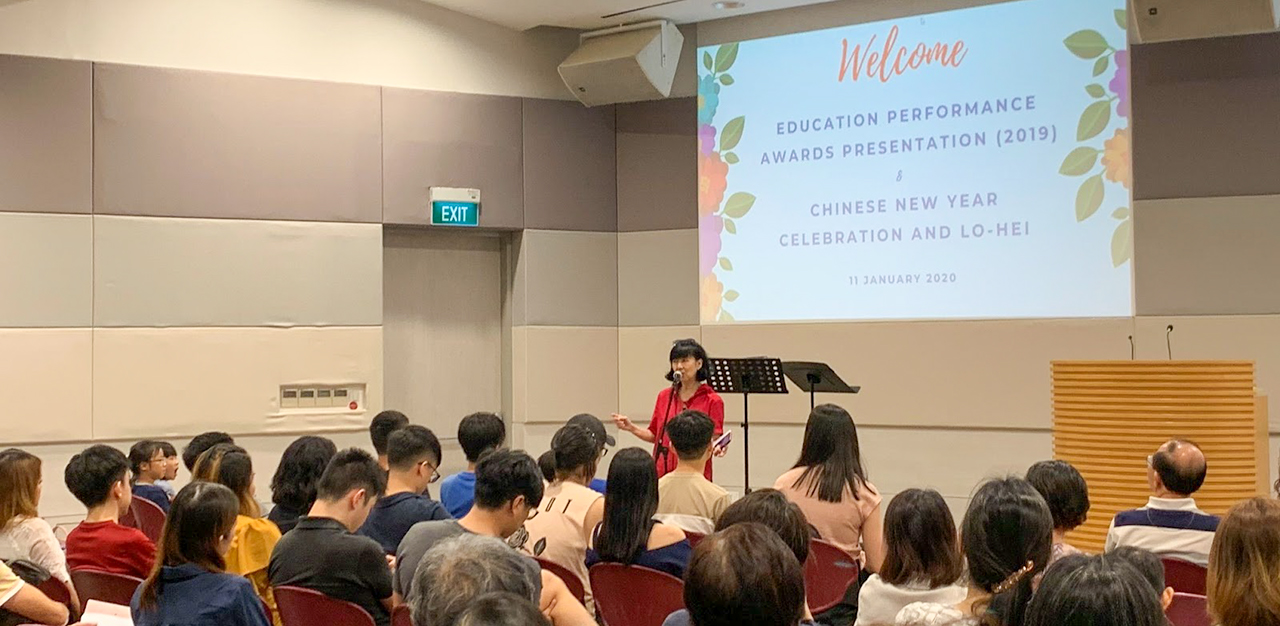
A tight budget and a skeleton staff, however, meant that the work was often slow and tough going. It was only in 2017, more than two decades after its inception, that Wicare finally caught the eye of the Government.
A small survey by the National Council of Social Service (NCSS) had flagged widows as an underserved group, and Wicare was approached with a three-year grant to expand outreach to and shore up support for widows in Singapore. With the backing of the NCSS, Wicare was able to develop and implement the WiShine initiative, a grief recovery programme geared toward helping women aged 50 and above adjust to widowhood via individual counselling, guided reflection and support group sessions, all provided free-of-charge by professional counsellors and trained volunteers.
During last year’s circuit breaker period, Wicare also joined forces with local restaurant Empress Porridge to launch the Care Meals project, wherein over 800 healthful meals like ginseng chicken soup and pig’s trotter noodles were supplied gratis to underprivileged families twice a week to ease the financial strain of the lockdown.
A tribute to International Widows’ Day
To commemorate International Widows’ Day on 23 June, three Wicare women speak to TheHomeGround Asia to share their stories, their struggles and their hopes for the future. Read on to hear from Wicare Chairperson Lim Poh Hong, Founder Joyce Lye, and member Sarah Jan.
A chat with Lim Poh Hong, 70, Chairperson, Wicare Support Group
TheHomeGround Asia: Could you tell us a little bit more about yourself and your family?
Lim Poh Hong: My husband passed away 21 years ago. I have one son in his mid-30s; he lives in Perth, Australia with his young family.
THG: Could you tell us how you became a widow?
LPH: My husband was diagnosed with lung cancer in 1997. We sought treatment both in Singapore and overseas. But he finally succumbed to [the cancer] three years later [in 1999].
THG: How did you and your son cope with the loss of your husband?
LPH: Not very well (laughs). You see, my husband was seven years my senior, [and] I was dependent on him. He looked after me, he pampered me, and because I was a workaholic, I left most of the decision-making to him. But when he passed away, my well-organised routine was suddenly tossed upside down.
I had to cope without someone on whom I depended, someone who was my best friend and my anchor. [I also had to cope with a] loss of identity. You’re still called Mrs Tan, but half of you is gone, and it’s not like he’s overseas, he is gone. That is quite tough.
Of course, I [experienced] a whole range of emotions. I felt lonely. [I felt] guilty as well. I remember I would take out the record I kept when I was his caregiver – what time to give him oxygen, what time to give him [an] injection, what time to turn him over etc. – and I would go through it and [ask myself], why did I do this, why didn’t I do that, why did I send him to the ICU, so on and so forth. [I experienced] a lot of guilt, a lot of reflection, a lot of rumination, and a lot of feeling bad.
THG: How did you find closure?
LPH: I think it happened gradually. At first, [when] friends [would] ask me out, I didn’t want to go out, I didn’t want to meet people. Especially if friends who were couples asked me out, I just wouldn’t go. I didn’t want to face the fact that we used to be couples together, but now I was all alone – the contrast was too stark.
Finally, however, there was a friend who asked me to go [with her] to Bible Study Fellowship (BSF). I was [already] a Christian by then, but somehow, during that period, I found a lot of comfort in God’s word. That helped me a lot.
Then, about a year later, I found Wicare. The pastor who was counselling me at the time told me about the Wicare Support Group and gave me [their] phone number. I contacted them, and [thereafter] began to join their gatherings. What struck me was how kind everyone was and, even though they were widows, how radiant they all looked. I thought to myself, is that actually possible? It began to instil a sense of hope in me that I would be like that one day [too]. I think [hope] is very important. As I reflect [on it now], it’s good that I found Wicare.
THG: What were some of the challenges you faced after your husband passed away?
LPH: I think everything became really bleak; the world [felt] like a blur. In fact, one widow I met later [told me that] her world appeared in black and white, no colour. Other widows survived on milk powder because they didn’t know how to cook. It sounds almost ridiculous but because I went through it, I understood what they meant. I lost my sense of purpose, and the meaning of life was gone.
I also lost my sense of security and identity. I didn’t want to go out with friends. I didn’t like to go to church, either, because the [church members] would ask me, ‘How are you?’ [Which was a] question I couldn’t answer. If I said, ‘No, I’m not good’, I knew they couldn’t take it. If I said, ‘I’m well, I’m fine’, I would be lying.
The other [challenge] was trying to make decisions without my husband. I had been so focused on work that I depended on him to make decisions big and small, whether it was finances, household, car, even holidays. Which means that when there were things that broke down, [I got] very upset, because I felt so helpless, so guilty and so ashamed. All these emotions would [flood] in.
THG: What kept you going during these difficult times?
LPH: God. Even though I had been a Christian for 10-plus years by the time [my husband passed away], I felt like a marginal Christian – yes, I went to church and I read God’s word, but there was no intimacy with God. [It was] only then that the words at church started to jump at me… I felt comforted.
I think what also kept me going was my son. I was so wrapped up in my own grief that I forgot he too would go through grief. Thinking back, I don’t even remember how much I talked to him; I was sleeping a lot, I was in my room a lot. Did I talk to him? I don’t really know. If I did, it was probably [about] food, school, homework etc. I don’t think I asked him how he was doing.
He was 13 then, and [he had to grapple with] grief on top of all the usual adolescent growing pains. He started playing computer games to drown out his sorrows. He would play late into the night and couldn’t get up [on time] to go to school. [It was then that] I started to pay attention [to him]. I started to think how to ensure he went to school; I would come up with rewards and punishments. My focus then became [directed toward what I thought was] rebellion and how to deal with that.
Of course, we had a lot of conflict, because I wasn’t [addressing] his pain points. In that sense, I wasn’t dealing with my grief, because the inability to handle conflict is a manifestation [of grief]. A part of you is unbalanced, so you cannot deal with grief or any other emotions. It got quite bad at one stage. We sort of struggled through, and once I started paying attention [to his problems] I would read books, I would talk to friends, and that’s how I realised children experience grief as well. That [has] influenced a lot of what I’m doing at Wicare today.
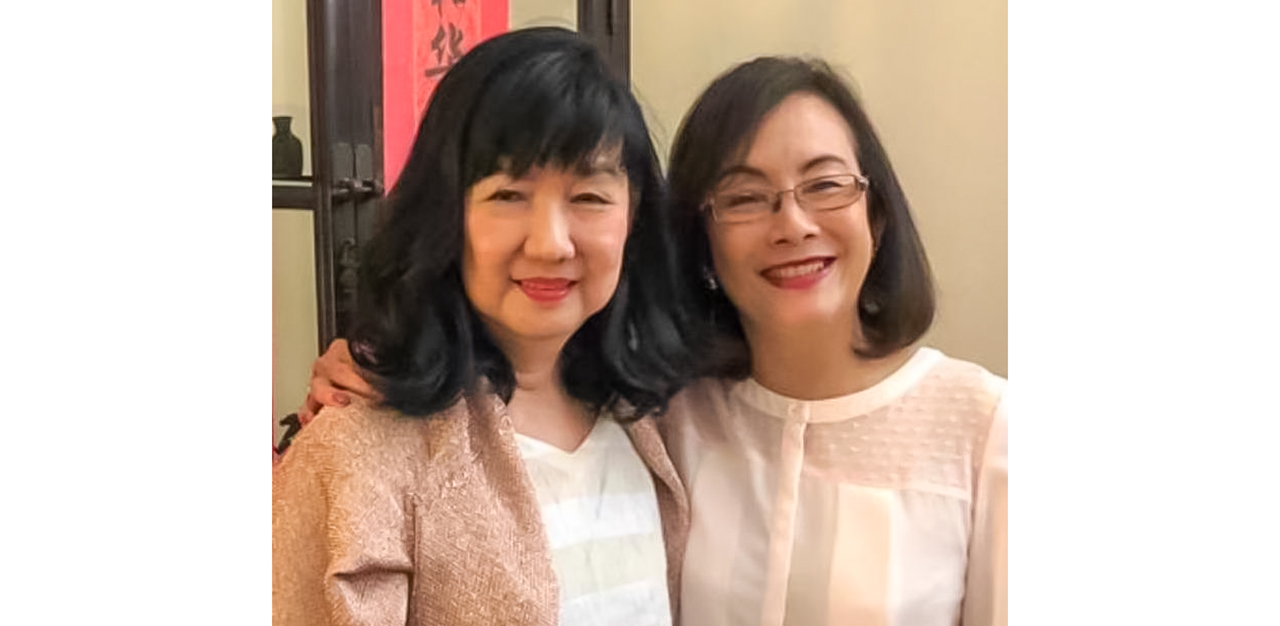
THG: Could you explain more of what the Wicare Support Group is and does?
LPH: I first joined [Wicare] as an ordinary member, then I became Vice Chairman, and in 2017, I finally stepped up as Chairman. Because of my corporate training, my focus [is] on transition management; helping women transit from learning to cope with grief to connecting with other widows to, when they are ready, coming back and contributing as volunteers. [Wicare] is a self-help group – [we rely on] peer support, widow helping widow.
Grief is very complex. Initially, it’s helping them [learn] how to cope with their emotions, with the upheaval in their lives. But we don’t stop there. We continue journeying with them as friends, as buddies, which means we have to help them cope with life’s changes.
THG: So you get paired up with people and then you journey with them?
LPH: Yes! That’s actually our unique point [of difference]. Most organisations would help widows deal with grief at the moment [of bereavement], but they are not structured to journey with them [beyond that]. We’re for the long haul. We also link up with other social service organisations so that we enlarge the areas of support.
THG: When you get paired up with another widow, do you have to go through training or do you rely on your own personal experience to help them?
LPH: It’s a bit of both. When you meet a fellow widow, you know that whatever you say and whatever you do, it’s accepted. When you talk to well-meaning relatives and friends, however, you find they cannot handle if you cry too much. [For instance], when I met with friends, I wanted to hear them talk about my husband, but they wouldn’t because they were worried I would cry and then they wouldn’t know what to do. But you know that with [fellow] widows you can cry, you can laugh, anything, and it’s accepted. I think that’s important [for] healing; when you can share openly, it is therapeutic.
But there is also complicated grief, and that’s where you really need training. It’s not uncommon for [widows] to have ideas of self-harm, but when those ideas become entrenched, you [have to] seek professional help. [That’s why] we need to enlarge our volunteer pool. We need to train and equip [volunteers] to not only walk with the widows, but also recognise the warning signs [that indicate] the need for professional support, which could mean the [Wicare] counsellors or, in serious cases, the Institute of Mental Health and the Samaritans of Singapore.
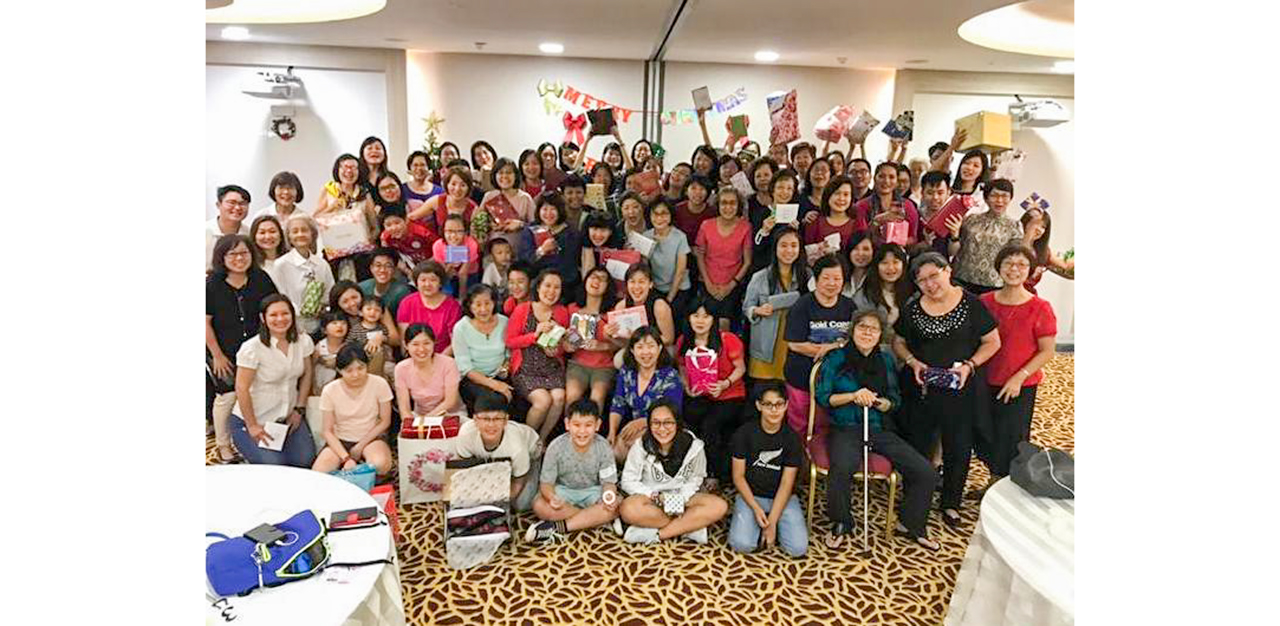
THG: Could you tell us about the WiShine programme?
LPH: [Wishine] is a structured group support programme – a kind of grief therapy that’s facilitated by [our] counsellors. We had a different version [of the programme] in the early days, where we just get the widows together with a facilitator to talk. As I said before, sharing is therapeutic, and when I can talk about my pain in a safe space, healing takes place.
With NCSS guidance, we were able to structure it into a three-part programme, comprising individual counselling, a 15-hour group support facilitated by a counsellor, and mentoring. [During group support], we have [a] theory [segment] on what grief is like, as well as sharing. Once the 15-hour programme is over, we assign the [participants] into sub-groups according to their life stage to ensure they share common interests.
And for those who are going through an especially tough time, we have what we call a mentor or grief befriender, someone who will walk with you and you can pour [your heart out]. [Grief recovery] is a journey, and we journey alongside them.
THG: What advice do you have for families dealing with the loss of a loved one?
LPH: [I have] quite a lot of advice, actually (laughs). We know that family members and close friends mean well, but they also need to [recognise] that there are different stages of grief. When [a person is in] the intense grief [stage], just being there with her is enough. [For instance], when I [was] in intense grief, I had a friend who would show up with snacks and just sit there with me, listen to me, and chat casually with me. That meant a lot.
You don’t have to give an answer or a solution or help the person move on. You have to check yourself, [because] we cannot hasten the process, [otherwise the widow] might feel that she has to put on a front and hide her feelings from you.
There are words you should avoid. [For example], you cannot say, ‘I understand’. How could you possibly understand? You are going home to your husband, I have no one. But you can say something along the lines of, ‘I can feel your pain’ or ‘I can see that you are struggling’.
We also don’t like ‘How are you?’ Instead, you can ask, ‘How’s your day been?’ In fact, [once] when I was in church, a man just walked toward me and told me, ‘You look good today.’ I liked that. There was no judgment, no expected answer, it was just a neutral comment.
The other thing is, don’t be anxious if you don’t know what to say. Just stay quiet and listen – that is powerful. Basically, what I’m saying is you don’t need to offer solutions, just be there for them.
THG: Do you think that widows receive enough support from the Government, the community or otherwise?
LPH: Over the years, [there’s been] more and more [support for widows]. If you talk to our founder Joyce [Lye], you’ll hear that 30-plus years ago, there weren’t even any books [on grief] available in the shops. Now, though, more and more organisations are coming on the scene.
But [providing] the right kind of support is also important. In hospitals, for example, they have social workers to talk to the widow upon bereavement of the spouse, but [such support] is not carried through, because they are not structured to do so. That’s why, in our outreach [efforts], we ask them to refer [widows] to us so that we can take over for the longer haul. What we do is that we journey with the widow, immediately after bereavement and beyond. Not many other [organisations] do that.
But the fact that we received government support for the WiShine [programme] shows a greater awareness [of our cause]. In fact, [the Government] did a quality of life survey on senior [citizens] and found that, out of the various groups, senior widows actually have the lowest quality of life. That’s how [the NCSS] came to award us with a three-year grant.
When [the Government] supports you, it’s multifaceted. There’s the financial [aspect], of course, but they also sit down with you and help you brainstorm ideas on how to restructure [the organisation]. They are helping us to improve, which is great. It does [involve] more work, but I think the benefits outweigh all the [extra] work.
THG: What more do you think can be done to help support widows in Singapore?
LPH: I think the more you help, the more you see that there are needs. One other area stands out to me – children. Considering what I went through with my son and knowing the kind of mistakes we can make [in parenting], I want to do more for the children [of widows].
[In] these [last] two years, we’ve run more programmes for children, particularly for those going through adolescence. [For instance], some teenagers don’t know what to expect when it’s time for them to do National Service, so we get ex-officers to come and talk to them and allay their fears. But we want to do more.
To me, it’s [also] important to recognise that what we think is rebellious behaviour is actually unresolved grief. I don’t think there are rebellious kids, it’s just that maybe the [grieving] parents don’t know how to help [their children]. I want widows to be enlightened about what they can do [in those situations]. Another idea, is to work with schools, so that if there are grief-related problems, Wicare can come alongside and support the children who need it. Now that we have more people on our staff, we can do more and we can be more ambitious about the programmes we want to run.
A chat with with Joyce Lye, 69, Founder, Wicare Support Group
THG: What inspired you to start Wicare?
Joyce Lye: After my husband passed away, I felt really lost and really desperate. Every night, I would look into the sky and hope someone [up] there would help me. I would say, “If you are God, help me. If I am evil, punish me. But don’t punish my two daughters, because they did nothing wrong”. I would [also] ask, “If you are God, why couldn’t you stop the accident?” Whenever a Christian tried to reach out to me, I would challenge them, I would even blaspheme God.
Several months later, while I was in church, I saw these words flash across my eyes, “A widow among widows”. At first, I didn’t want [to listen]. I was only 33 then, and I wanted to get married [again]. But little did I know, God [would keep] sending widows into my life. Pastors would call and ask me to meet up with recently-bereaved women. I remember there was one widow – she eventually became our honorary secretary – who saw me at Bible study and just came over, gave me her card and asked me to call her. But I took my time because I didn’t want to do this kind of work.
By and by, however, I met so many widows that I thought maybe the best thing would be to bring them all together. I called up four other widows and asked them to meet me at the City Hall MRT station. I had hoped they would share their common struggles [with one another] so that I didn’t have to listen to their sad stories, I could just sort of delegate. My budget was very small and I could only afford to buy one [bowl of] ice kacang at the kopitiam, shared between the five of us. And [my plan] worked! The four of them poured out their hearts, and it was then that I realised we really needed to have a support group [for widows]. That’s how it all started.
THG: How is Wicare different from the other organisations that offer grief support?
JL: Wicare is very niche. What makes us different from [other grief support organisations] is that we focus not only on equipping widows to cope with their grief and emotions, but also on helping them to navigate the loss of identity.
What I mean by that is, we were once Mrs Wong, Mrs Tan, Mrs Lim [etc.], but now our identity as a [married woman] is gone. [For example], when our children were young and we would go to school or to the doctor, they would always call us Mrs so-and-so, which would have felt good if our husbands were around, but [since] they are not [it becomes] a trigger. Or in the past, when we had to fill out forms for things like income tax, they only gave you two [options], married or single, and that was a trigger too. What sets Wicare apart, therefore, is that we help widows [come to terms] with the loss of identity.
Another difference is that Wicare [offers] widow-to-widow support. If you put one widow next to another, they’d instantly feel very comfortable with each other, because there is an unspoken understanding between them. It’s like, “You know [how it feels] when I lay my head on the pillow and the next pillow is empty, you understand”. There’s a bond of sisterhood, of girlfriendhood. That’s why widows like to come together, because it takes a widow to understand a widow. That’s my tagline.
THG: What is Wicare’s vision for widows?
JL: Put simply, Wicare’s work is to help widows integrate back into society – to be able to work, hold a conversation, and above all, be a better mother. I gave my children a hard time during my first 10 months of widowhood because I didn’t know how to handle [my emotions], and I hurt them a lot along the way.
THG: What have you learnt in your years leading Wicare?
JL: Two things, actually. Firstly, time doesn’t heal, it’s what you do with [your] time. I learnt that when a group of us, including Poh Hong and myself, flew to San Diego to see how support groups were run [over in America].
Secondly, and I learnt this from the keynote speaker at the 2018 Grief and Bereavement Conference, we want to help grieving people get better because once they do, the entire nation’s productivity will increase. I was so happy when I heard that, because that’s exactly what Wicare is doing: helping widows become better mothers, better daughters-in-law, better friends, better colleagues etc., in order that they can go back to work and that the nation’s productivity can increase.
No wonder the Government wants to [invest in] social services, because we’re helping everyone to get back on their feet and be productive!
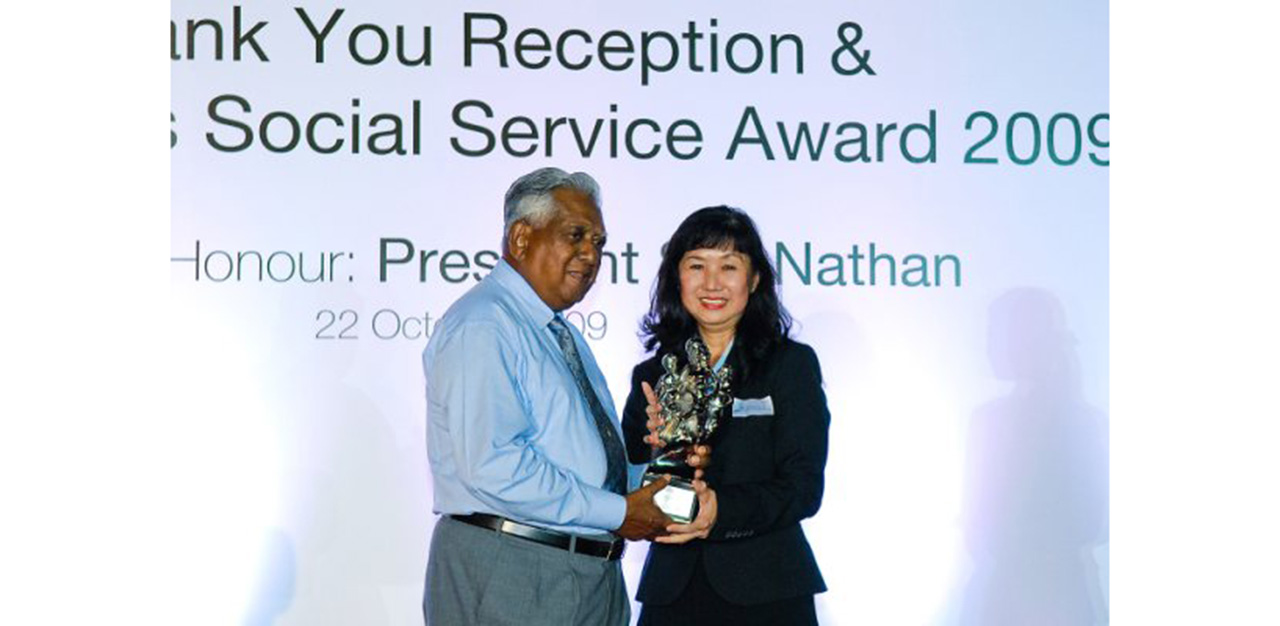
THG: What are some of your proudest achievements at the helm of Wicare?
JL: I think one [of my proudest moments] was when I won the President’s Social Service Award [in 2009]. Someone else had put my name forward [for the award], but I had no idea what it was all about (laughs). When I went for the interview, I felt really intimidated, because a lot of heavyweights were there – they ran big organisations and they probably had good profit and loss statements to show [their success]. Whereas Wicare had only about 700 widows on our mailing list at the time and about S$20,000 (US$14,855) in our bank account… That was very precious [to me] because it meant that the nation recognised the work of Wicare.
The second thing [I’m proud of] is that I was asked to participate in the Oral History project [run by the National Archives of Singapore]. I am very happy that Wicare’s story was included [in the project], and that I could leave a legacy for my future descendants.
The last one is a sense of fulfilment. I was once asked, who was Joyce before and who is Joyce after? You see, I was only married to my husband for 10 years, and since [he passed away], I’ve changed into someone who is able to cope [with challenges], someone who is a survivor, someone who has been humbled in many ways. This kind of gift is intrinsic – you cannot see it and you cannot acquire it except through pain. Do I want to be a widow and acquire this [gift]? No, I’d rather not. So it’s a double-edged sword. But it has definitely changed me into a better person, and I find [my work] very fulfilling because it’s a purpose-driven life. And this purpose-driven life is a mystery that helps [me] to live well, to live healthily and to live positively, because [I] have a purpose.
A chat with Sarah Jan, early-50s, Wicare member
THG: Could you tell us a little bit about yourself and your family?
Sarah Jan: My name is Sarah Jan. My husband and I were married for 25 years; we have no children.
THG: Could you tell me how you became a widow?
SJ: My husband passed away in 2019 from lung cancer.
THG: How did you cope with the loss of your husband?
SJ: I turned to God… [I] found this book by Elisabeth Kübler-Ross, On Grief and Grieving, very helpful. It [made] me see that I’m not alone in this matter [and that] what I’m feeling is totally normal.
I must also thank my husband’s dear friend Mr J, who shared stories about my husband with me. It warms my heart to know that besides [myself] there are other [people] who miss him deeply too.
[I’ve] picked up a new hobby: morning walks in nature parks.
The journey is difficult, but take it just one day at a time, and slowly but surely I will see the sunshine in my heart again.
THG: How did you find closure?
SJ: I now see the truth that life is uncertain but death is [certain], so I have to learn to let him go. It’s my heart that I have to comfort [in order] to accept the painful reality.
THG: What were some of the challenges you faced after your husband passed away?
SJ: The most difficult [time] was when I fell sick; I felt so helpless because I was all alone. Then there’s all the household chores, like cooking, cleaning and grocery shopping. There’s no longer an extra pair of hands to help you out, no one you can turn to for immediate advice and assistance.
THG: What kept you going during these difficult times?
SJ: My God, my family, my in-laws, and my friends [have] helped me a lot. My job helps to take the pain away from nine to five!
THG: How did you get involved in Wicare?
SJ: My sister did a Google search on widows support groups.
THG: What advice do you have for families dealing with the loss of a loved one?
SJ: Be kind to yourself. Give yourself time and take it slowly. Remember that your loved ones long for you to live on happily and meaningfully. And don’t be afraid to ask for help.
THG: What advice do you have for family members and friends who want to support someone dealing with the loss of a loved one?
SJ: Be patient. Smile. Listen to them with your whole heart. Don’t run away when they cry. Remind them to eat.
THG: What more can be done to help those who’ve lost a loved one?
SJ: [There] should [be] a community or an organisation to check in on widows [and their] emotional health, as well as financial schemes and [support] programmes to help them get back on their feet.
Join the conversations on TheHomeGround Asia’s Facebook and Instagram, and get the latest updates via Telegram.
